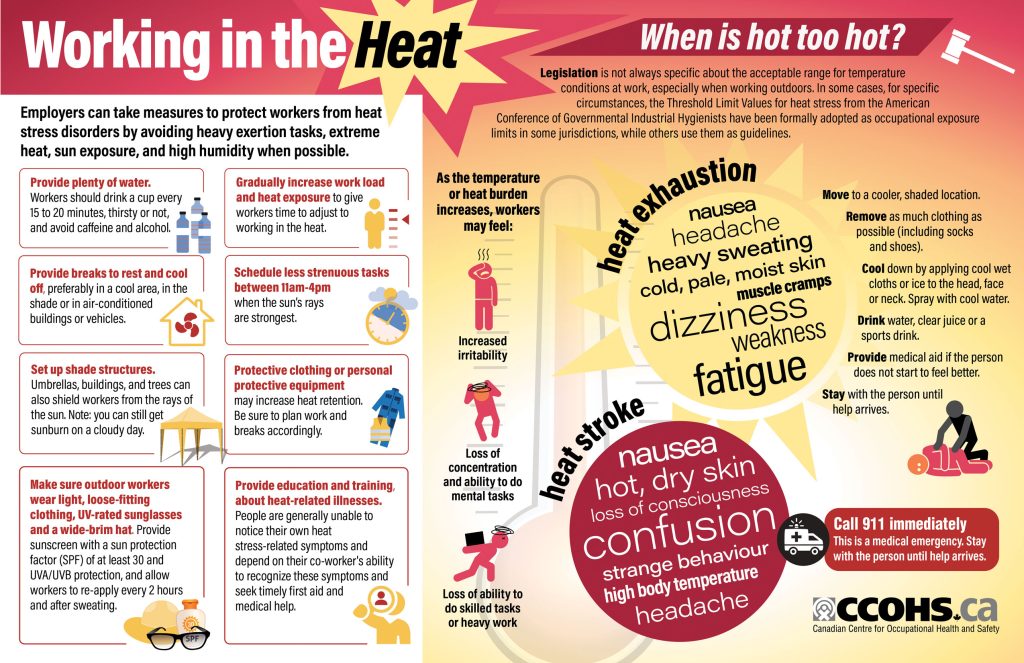Heat Puts Stress on the Body
Engaging in physical activity where it is hot puts stress on the body’s cooling system. The harder your body works, the more heat it has to dissipate to maintain temperature equilibrium. Environmental heat stress can place additional strain on your body that may lead to fatigue, dehydration, heat-related illnesses and possibly even death.
In outdoor occupations, such as construction, summer sunshine is the main source of heat. It can potentially overwhelm the body’s ability to deal with heat.
The Effects of Hot and Warm Weather
Most people feel comfortable when the air temperature is between 20°C and 27°C and the when relative humidity ranges from 35 to 60%. When air temperature or humidity is higher, people feel uncomfortable. Such situations do not cause harm as long as the body can adjust and cope with the additional heat. Very hot environments can overwhelm the body’s coping mechanisms leading to a variety of serious and possibly fatal conditions.
When the air temperature or humidity rises above the optimal ranges for comfort, problems can arise. The first effects are subjective in nature – they relate to how you feel. Exposure to more heat stress can cause physical problems such as heat cramps, heat exhaustion and heat stroke, all of which impair workers’ efficiency, and may cause adverse health effects.
The following are some of the symptoms of heat exhaustion and heat stroke. If you or a co-worker exhibit any of these symptoms seek medical attention immediately.
Symptoms of Heat Exhaustion
- Heavy sweating
- Cool moist skin
- Strong thirst
- Quick pulse
- Rapid breathing
- Feeling of fatigue and possible fainting
Symptoms of Heat Stroke
- High body temperature (>40°C)
- Very hot, red and dry skin
- Tiredness / confusion
- Very rapid pulse
- May suffer convulsions
Tips For Working Safely in Hot or Warm Weather:
- Stay hydrated
- Drink plenty of water – frequently (equivalent of about one litre every hour) – in hot weather conditions, whether you feel thirsty or not, to replace the fluid loss
- Avoid consuming caffeine and alcohol, which can dehydrate you
- Plan work around the warmest times of day
- Take frequent breaks to cool down
The CCOHS provides the following infographic that can be shared with your employees. Click on the infographic to download

